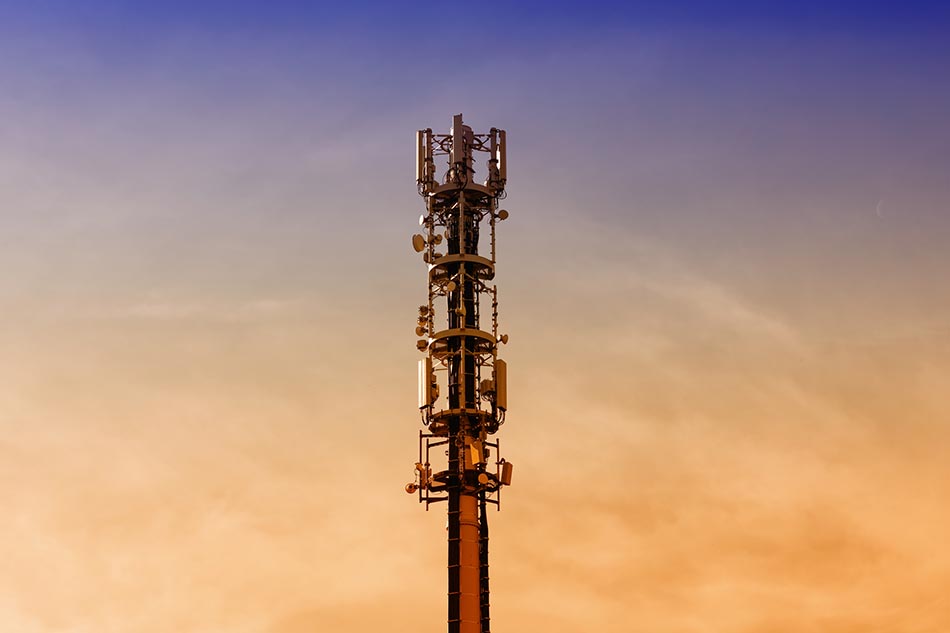FCC, NTIA Formalize Spectrum Cooperation
New memorandum of understanding comes only hours before Hill hearing on spectrum cooperation

The smarter way to stay on top of the multichannel video marketplace. Sign up below.
You are now subscribed
Your newsletter sign-up was successful
Only hours before the Senate Commerce Committee’s scheduled hearing on past spectrum disputes between the Federal Communications Commission and the National Telecommunications & Information Administration, the agencies announced a new memorandum of understanding on coordinating their spectrum oversight, including regular formal interagency spectrum planning meetings.
NTIA oversees government spectrum use while the FCC oversees commercial users.
Sen. Ben Ray Luján (D-N.M.), chair of the Subcommittee on Communications, Media, and Broadband, billed the oversight hearing Tuesday (August 2) as looking at ensuring the agencies‘ coordinated efforts given “important policy considerations to ensure spectrum is utilized for the greatest benefit to the public.”
The FCC and NTIA have had some friction over sharing of spectrum, particularly between commercial wireless and aviation safety systems.
But in February, they announced a new initiative to improve their coordination of spectrum management.
And before Lujan could gavel in that 2:30 p.m. oversight hearing in the subcommittee, the FCC and NTIA had unveiled their MOU update — the first in a couple of decades — essentially formalizing their new cooperation.
The highlights of the MOU include:
- “Formalized High-Level Planning. For the first time, the FCC Chair and Assistant Secretary will hold formal meetings to conduct joint spectrum planning at least quarterly.
- “A Longer-Term Spectrum Outlook. FCC and NTIA staff will meet at least monthly to exchange information. Where possible, the agencies will share their planned spectrum activities for the next 12 months.
- “Greater Coordination. The agencies have committed to coordinating more of their spectrum activities than was required under the prior MOU, including when the agencies are considering taking actions that would create new spectrum adjacencies. The updated MOU also extends the amount of time for coordination.
- “Improved Transparency and Data Sharing. Both agencies will endeavor to share information, concerns, or views as early in the spectrum planning process as possible, supported by technical data and analysis that is based on sound engineering principles. For NTIA, this includes sharing information, concerns, or views of other federal agencies as well.
- “Clearer Dispute Resolution. FCC and NTIA will work together to develop and implement a process for escalating any disputes for consideration by agency leadership.”
“This effort, as part of our broader Spectrum Coordination Initiative [established in February], helps make that possible,” Rosenworcel said. “I am grateful to have the leadership and partnership of [NTIA head Alan] Davidson in this important work.”
“A spectrum coordination agreement that pre-dates the smartphone is not sufficient to meet the challenges facing our agencies today,” Davidson said. “This updated MOU between NTIA and the FCC will deepen our collaboration and improve our ability to anticipate and mitigate serious spectrum issues.”
Sen. Lujan praised the MOU in his hearing opening remarks. He said it addresses many of the challenges for managing broadband and other bands.
“I applaud the FCC and NTIA for reaching an agreement on spectrum coordination," said Competitive Carriers Association President Steven K. Berry. "Spectrum coordination between these two agencies is essential to ensuring issues are properly addressed before spectrum is designated for commercial use. This is an important step in the right direction and will provide much-needed clarity around the most valuable resource for wireless carriers, and I commend the efforts to ensure carriers are able to purchase and use their spectrum as quickly and efficiently as possible.”
A trio of top Republicans praised the MOU. That was no surprise given that they have sponsored legislation that would further formalize it and insure that it is regularly updated.
"Consistent with our legislation, the updated agreement between the FCC and NTIA is the first in almost two decades," said Sens. Roger Wicker (R-Miss.), ranking member of the Senate Commerce Committee; John Thune (R-S.D.), ranking member of the Communications Subcommittee; and Marsha Blackburn (R-Tenn.). ranking member of the Consumer Protection Subcommittee. "Still, it is important to pass our legislation to codify this effort and ensure that we do not go another 20 years without an update.”■
The smarter way to stay on top of the multichannel video marketplace. Sign up below.
Contributing editor John Eggerton has been an editor and/or writer on media regulation, legislation and policy for over four decades, including covering the FCC, FTC, Congress, the major media trade associations, and the federal courts. In addition to Multichannel News and Broadcasting + Cable, his work has appeared in Radio World, TV Technology, TV Fax, This Week in Consumer Electronics, Variety and the Encyclopedia Britannica.

